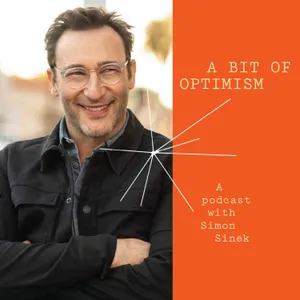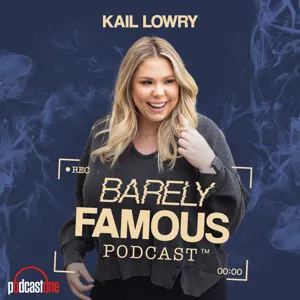Podcast Summary
Exploring unexpected relationships and conflict resolution: Empathy, patience, and effective communication are key to resolving conflicts and fostering strong relationships, even in unexpected circumstances
Creative approaches to conflict resolution can lead to improved relationships, even in unexpected circumstances. This was explored in a TED Radio Hour episode featuring Shaka Sengor and Ebony Roberts, who met and fell in love while Shaka was in prison. Despite the challenges they faced upon Shaka's release, including societal readjustment and personal struggles, their deep emotional connection helped them overcome obstacles and build a future together. This story highlights the importance of empathy, patience, and effective communication in resolving conflicts and fostering strong relationships.
The pressure of providing for a family can lead to conflicts: Addressing conflicts in relationships is crucial for maintaining healthy relationships and building a better future.
Relationships, even under normal circumstances, can be challenging. But when faced with additional stressors like a recession, PTSD, or a foreclosure, the pressure can build up and lead to conflicts. In the case of Ebony and Shaka, their anxiety about providing for their family led to feelings of emasculation and resentment. Despite their best efforts to work through their issues, they ultimately decided to separate. However, their shared desire to provide a stable family environment for their son, Seku, led them to continue co-parenting peacefully. This experience highlights the importance of addressing conflicts in relationships, whether through therapy or other means, to prevent them from becoming toxic and potentially irreparable. Conflict is a natural part of life, but finding peaceful ways to work through differences is crucial for maintaining healthy relationships and building a better future for ourselves and our communities.
Creating a strong co-parenting partnership despite a difficult relationship: Focusing on the well-being of their child, Shaka and Ebony overcame challenges to create a successful co-parenting partnership, prioritizing love and emotional support over scheduling and decision-making.
Even in the face of a difficult relationship ending, prioritizing the well-being of their child led Shaka and Ebony to create a new kind of partnership as co-parents. Despite the challenges they faced, they chose to focus on love and put their son first, creating a model of successful co-parenting. They understood that co-parenting was about more than just scheduling and decision-making, but rather helping each other carry the emotional weight and honoring the beauty of their child. Through their experience, they hope to show that it's possible to move past relationship issues and create a strong and supportive parenting partnership.
Communication and partnership are crucial for successful co-parenting: Focus on child's needs, set aside personal feelings, communicate openly, and support each other to create a strong bond of love as co-parents.
Effective communication and partnership are key to successful co-parenting, even after a romantic relationship has ended. The speakers in this conversation emphasized the importance of setting aside personal feelings and focusing on the needs of their child. They also highlighted the power of showing love and support for each other in vulnerable moments. Despite the challenges of raising a child in a society that can be unsupportive of black families, they found strength in their ability to put their differences aside and create an unbreakable bond of love. They encouraged others in similar situations to focus on what's best for the child and to communicate openly and respectfully with their co-parent. By doing so, they have shown that even in toxic times, it's possible to find ways to come together and support each other as parents.
Honesty and compassion essential for addressing conflicts between humans and elephants and within society: Understanding each other's perspectives and working together can create harmonious coexistence between humans and elephants. Acknowledging and addressing harmful policies and social norms fosters compassion and honesty, leading to conflict resolution and a more equitable society.
Honesty and compassion are essential for addressing conflicts, whether they exist between different species or within a society. In the case of the conflict between humans and elephants, the root cause is a struggle for space and resources. As human populations grow and more people become subsistence farmers, the limited land becomes a valuable commodity. When elephants encroach on these small plots, farmers may feel desperate enough to harm or even kill the elephants to protect their livelihoods. However, this cycle of conflict can be broken by acknowledging the realities of both parties and showing compassion. For instance, Lucy King's work with Save the Elephants in Kenya focuses on finding solutions that benefit both humans and elephants. By understanding each other's perspectives and working together, it's possible to create a more harmonious coexistence. This approach can also be applied to societal conflicts, as the speaker emphasized the importance of acknowledging and addressing the harmful policies and social norms that impact marginalized communities. By fostering compassion and honesty, we can work towards resolving conflicts and creating a more equitable society for all.
Elephants Fear Bees: A Natural Solution to Human-Elephant Conflict: Elephants avoid trees with beehives due to fear of bee stings, leading to the invention of beehive fences as an effective solution to human-elephant conflict.
The fear of bees keeps elephants at bay, making it a potential solution for human-elephant conflict. This discovery was made during a PhD study in Kenya, where elephants were observed to avoid trees with beehives. The researchers confirmed this folklore by disturbing a beehive and observing the elephants' reaction. Elephants have thick skin but vulnerable areas around their eyes, trunk tip, and behind their ears, making them susceptible to bee stings. The pain and memory of a sting, as well as the infra-sonic warning rumble among elephants, contribute to their fear. This finding led to the invention of beehive fences, which use real and dummy hives to protect farmland from elephants, effectively reducing conflict and promoting coexistence.
Using nature to prevent human-animal conflicts: Beehive fences and chilies are effective, nature-inspired solutions to deter elephants from damaging crops, promoting coexistence between humans and animals.
Simple, nature-inspired solutions can effectively address human-animal conflicts. For instance, beehive fences have proven to be an effective method to deter elephants from destroying crops in Africa. These fences consist of hives hung on posts with a shade roof, interconnected by a simple wire. When an elephant tries to push through the space between the hives, the swinging motion caused by the contact with its body scares the elephant away. This approach not only protects crops but also allows elephants to roam freely and coexist with farmers. It's a reminder that we often overlook nature's problem-solving abilities and should consider these solutions before turning to expensive technological fixes. Another example is the use of chilies to keep elephants away from farms. By embracing these natural methods, we can foster a more harmonious relationship between humans and animals and contribute to a healthier, more sustainable world.
From science stories to understanding complex conflicts: Jad Abumrad's journey from telling science stories to exploring complex conflicts reveals the importance of engaging with the messiness of the world and finding common ground in our differences.
Storytelling, especially in today's divided world, is about more than just evoking awe or wonder. It's about bridging different realities and understanding complex conflicts. Jad Abumrad, the host of RadioLab, shares his journey from telling science stories that evoke wonder to delving into the heart of conflicts. He realized that science isn't the only way to understand the world and that deeper truths often hide behind the surface. In one particular episode, Jad and his team investigated allegations of chemical weapons being used against villagers in Laos. The Western scientists concluded that bee pollen was the cause, but the villagers insisted it was chemicals. The interview ended in a stalemate, leaving Jad questioning the nature of truth and the role of storytelling in bringing justice and understanding to complex conflicts. Ultimately, Jad's new understanding of storytelling is about engaging with the messiness of the world and finding common ground in our differences.
Bridging differences through truth: Jad Abumrad learned to focus on the process of truth and be a bridge between differences, leading meaningful conversations.
Truth is no longer a fixed noun but a dynamic process that requires understanding and bridging differences. Jad Abumrad, the host of Radiolab, shares his realization after a controversial interview left him feeling horrible. He committed to telling stories that showcase the collision of truths and the importance of leading people through moments of struggle. In his nine-part series, Dolly Parton's America, Jad sought to understand how Dolly Parton, a symbol of unity and inclusivity, manages to bring people together despite their differences. Through their conversations, Jad discovered the importance of going beyond simple categories and embracing the complexities of life. By focusing on the process of truth rather than the final product, Jad learned to be a bridge between differences and lead meaningful conversations.
Dolly Parton's complex relationship with her former partner: Empathy, forgiveness, and open communication can create unique and growth-oriented relationships instead of compromising for the sake of institutions or organizations.
The complex relationship between Dolly Parton and her former partner was marked by power dynamics, love, and forgiveness. Dolly's capacity for empathy and forgiveness allowed her to maintain her individuality while also showing compassion to her partner. This idea of mutual engagement and creating a separate third space in relationships, as proposed by Jessica Benjamin in her book "Beyond Doer and Done To," resonated with the speaker and offered a new perspective on the potential for growth and understanding between people. Instead of compromising for the sake of an institution or organization, the people involved can create something new and unique through open communication and mutual recognition.
Exploring the magic of third spaces: Through inclusive interactions, third spaces foster meaningful connections and promote understanding between people.
The most interesting interactions often occur when different individuals come together to create something new. Dolly Parton's inclusive concerts serve as an example of this, where her radical openness towards her audience fosters a unique third space where everyone feels welcome. As a storyteller, Jad Obemrod aims to model the struggle of bridging differences and transforming disparate realities into something new and harmonious. This third space, whether physical or spiritual, is where meaningful connections are formed and understanding between people can flourish.






